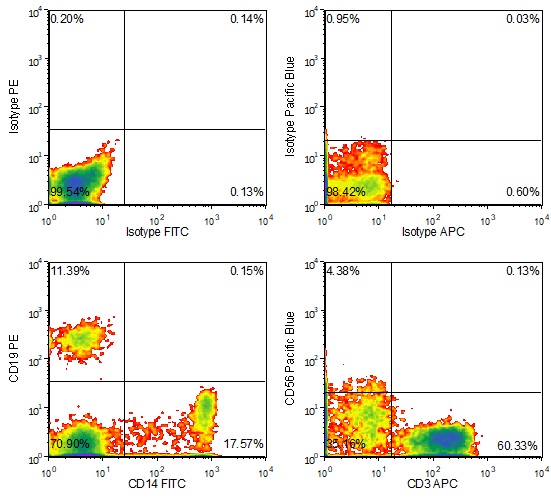Irradiated PBMC as Research Tools
Irradiated PBMC are PBMC from normal donors that have been subjected to high frequency ionizing X-Ray or gamma radiation. This exposure creates DNA damage that prevents certain cells (e.g., T cells, NK cells, B cells) from undergoing cell division. Irradiated PBMC components retain cellular functions, such as cytokine secretion, cytotoxicity, and co-stimulation, but are unable to proliferate. These characteristics make irradiated PBMC an ideal research tool as
- feeder cells in the expansion of several immune cell types (NK cells, tumor-infiltrating lymphocytes [TIL], CAR-T, T cell clones etc.)
- antigen-presenting cells for in vitro T cell stimulation
- target cells in a one-way mixed-lymphocyte reaction (MLR) assay
Irradiated PBMC from Ignyte Bio
Ignyte Bio offers cryopreserved human irradiated PBMC as a “thaw and use” reagent for your immunology research. Our irradiated PBMC products have the following characteristics to support your experiments:
- Exposed to a dosage of 25 Gy of radiation to assure complete inhibition of cell proliferation while maintaining certain cell functions
- High viability upon thaw (>90%)
- Complete donor information including HLA typing data presented in each COA
- Lot-specific information including immuophenotyping data (Figure 1) presented in each COA
- Non-irradiated PBMC and their individual components (e.g., T cells, monocytes) from the same donor are available for autologous studies
Figure 1. Phenotype of Cryopreserved Human Irradiated PBMC. Cryopreserved human irradiated PBMC were thawed and incubated with anti-human CD14 FITC, CD19 PE, CD56 PB and CD3 APC, or with isotype controls. Samples were analyzed in the Beckman CyAn flow cytometer.

